
On a warm August evening in 1765, Thomas Hutchinson, lieutenant governor of the British colony of Massachusetts, sat down to supper in his mansion, one of the finest homes in the colonial city of Boston.
As he prepared to eat, word reached Hutchinson that an angry mob was advancing. He swiftly “directed my children to fly to a secure place” and withdrew to a nearby house, “where I had been but a few minutes before the hellish crew fell upon my house with the rage of devils and in a moment with axes split down the door and entered”.
The horde tore apart Hutchinson’s mansion, from room panelling to roof tiles, drinking his wine and stealing silverware and money. By the following day, he wrote, “nothing remained but bare walls and floor”.
The rampage that wrecked Hutchinson’s home on 26 August 1765 was the culmination of months of unrest among colonists protesting the wildly unpopular Stamp Act, passed by the British parliament in March 1765. This act, which would take effect the following November, imposed a tax on legal and official papers and publications circulating in Britain’s 13 North American colonies. Heated opposition had flared in cities including New York, Boston and Newport, Rhode Island, with strident objections published in pamphlets and newspapers. And just 12 days before the attack on Hutchinson’s mansion, an effigy of Boston’s stamp tax agent had been hanged, stamped on, decapitated and burned.
This story is from the Christmas 2023 edition of BBC History UK.
Start your 7-day Magzter GOLD free trial to access thousands of curated premium stories, and 9,000+ magazines and newspapers.
Already a subscriber ? Sign In
This story is from the Christmas 2023 edition of BBC History UK.
Start your 7-day Magzter GOLD free trial to access thousands of curated premium stories, and 9,000+ magazines and newspapers.
Already a subscriber? Sign In

Viking mussels
ELEANOR BARNETT digs into archaeological research to recreate a Viking-cum-AngloSaxon seafood dish from medieval York
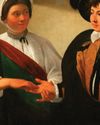
Fingers, frog's and fairies
Fortune telling was all the rage in the 16th and 17th centuries, and practitioners would stop at nothing to tap in to the supernatural. Martha McGill tells a story of Highland seers, tarot cards and encounters with the spirit world

Nothing matches being with Alexander the Great on foot in the Hindu Kush
AT OUR LITTLE FILM COMPANY, MAYA VISION, we recently took the decision to digitise all of the rushes of our key films so that we could dispose of hundreds of boxes of tapes that had been kept in storage, throwing out stuff we thought we would never need again.

Library of the dead
Highgate Cemetery, created as a fashionable resting place for wealthy Victorian dead, is a veritable who's who of London's great and good. PETER ROSS roams the avenues of this most atmospheric necropolis
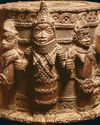
Slavery, exploitation and racism. These tragedies have long dominated histories of Africa. But there's another way to tell this story. And it's one that puts Africans right at the centre of their continent's extraordinarily rich and vibrant past
An 1414, in the Chinese city of Nanjing, a giraffe caused a stir. Amid a crowd of shocked, noble spectators, an official, leading the creature via a rope tied round its face, presented it to China's Yongle emperor. His officials said it was a qilin - an auspicious unicorn - which his sage governance had made appear.
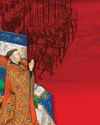
England's forgotten hero
When the Hundred Years' War was reaching a climax, one man was fighting tenaciously to secure the English claim to the French crown. So why, asks Joanna Arman, is Henry V's formidable brother, John, Duke of Bedford, not better known?
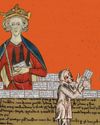
HENRY III AND THE MAGNA CARTA THAT MATTERED
King John's sealing of a charter at Runnymede in 1215 is one of the most feted moments of the Middle Ages. Yet, writes David Carpenter, it was the charter issued by his son 10 years later that became fundamental to England's history
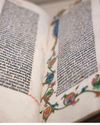
Gutenberg publishes a pioneering new book
‘The printing press triggers an information revolution
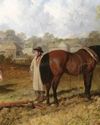
How empire ruptured rural Britain
We know that enslaved Africans and their descendants suffered in the distant colonies of empire. But, as Corinne Fowler explains, the colonial system also had dire impacts on people in the countryside of the 'motherland'
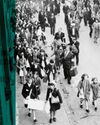
"I FELT VERY ALONE IN A WORLD GONE HORRIBLY MAD"
It was a moment of possibilities, dislocation and dread. Dan Todman tells the story of the 1.5 million urban Britons evacuated to the countryside at the start of the Second World War